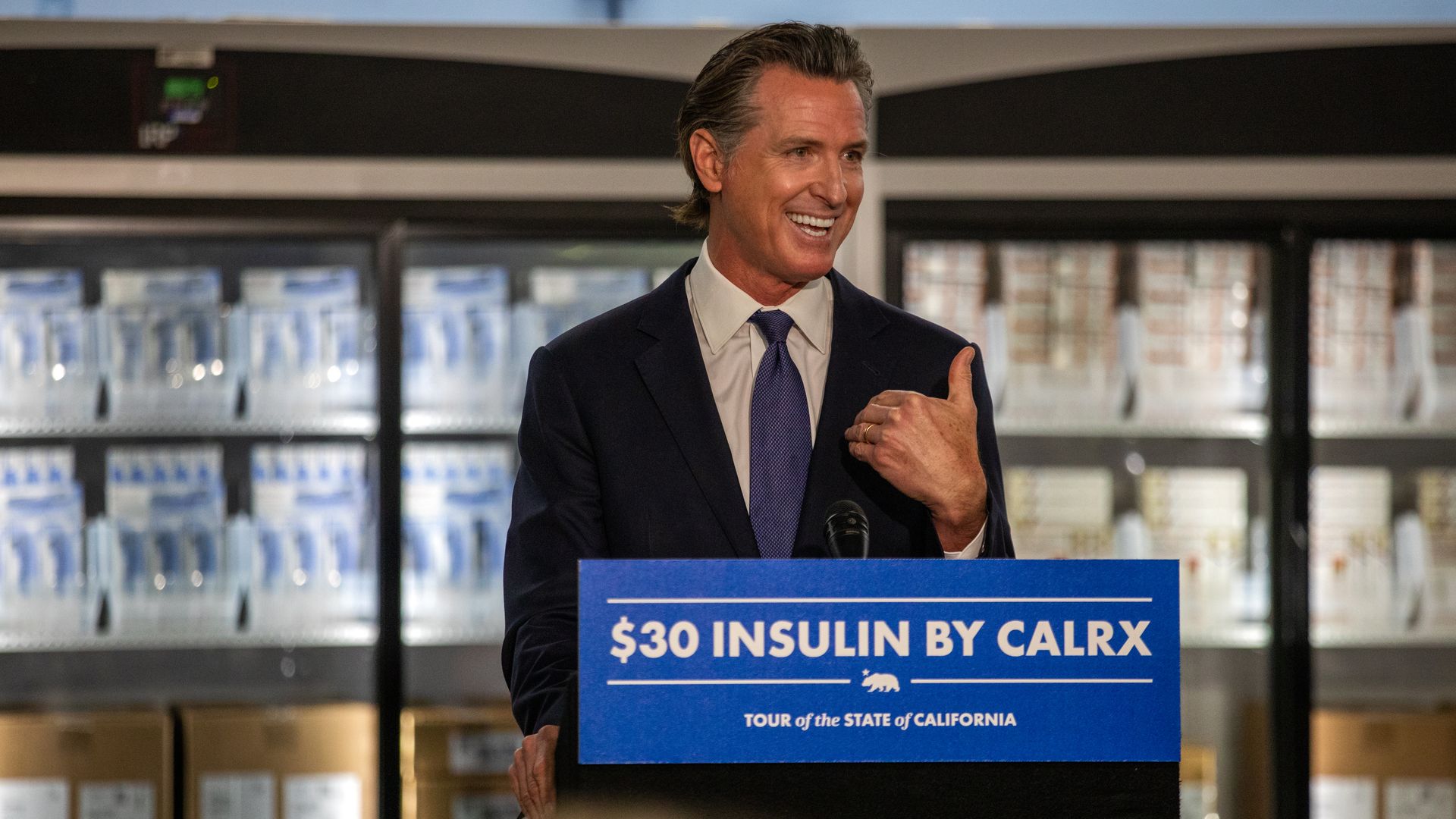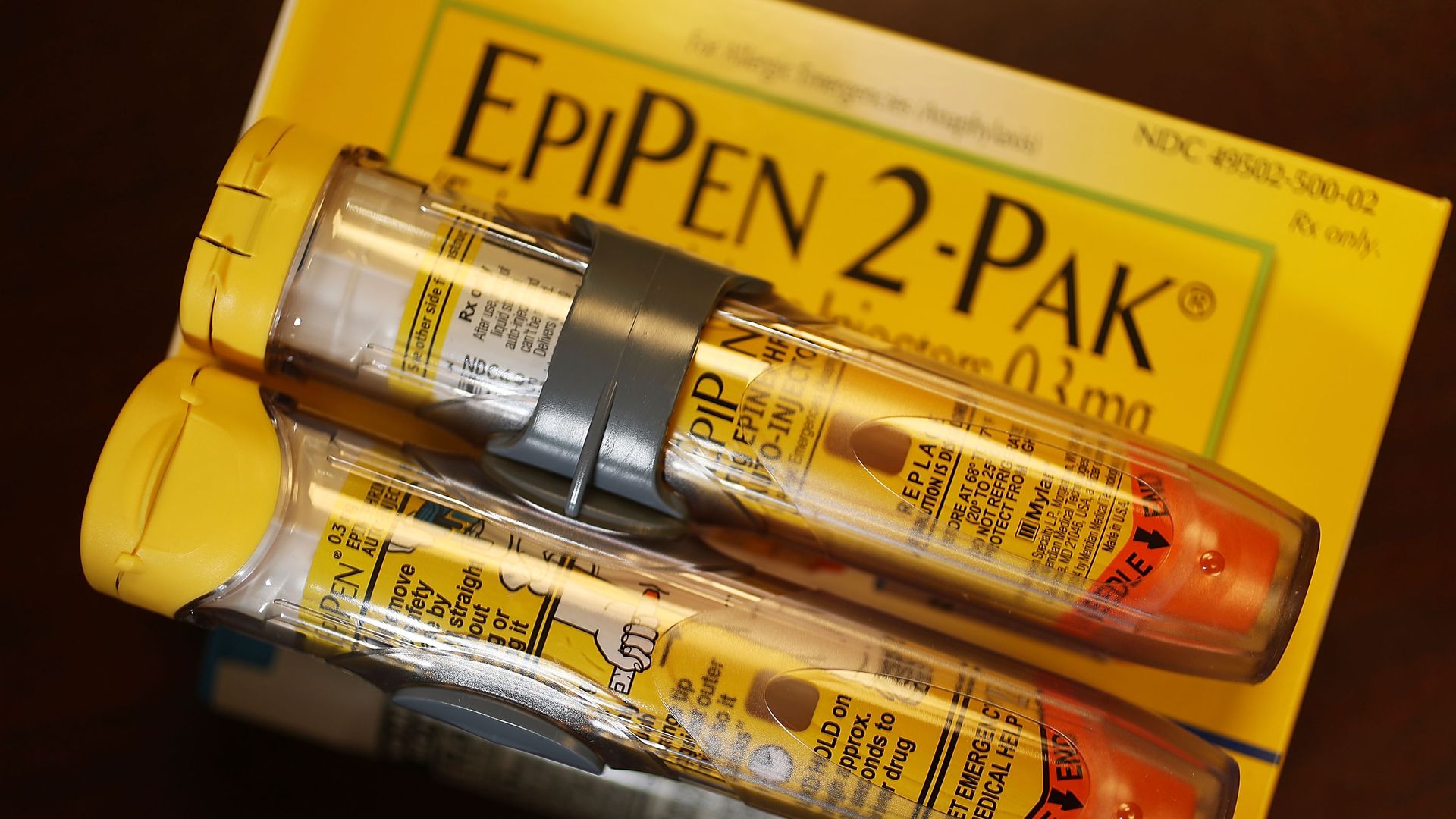Plus, California cuts insulin deal | Monday, March 20, 2023
| | | | | | | Presented By Emergent | | | | Axios Vitals | | By Tina Reed · Mar 20, 2023 | | Welcome back from the weekend, Vitals readers. Today's newsletter is 771 words or a 3-minute read. 🍻 On tap this week: Moderna CEO Stéphane Bancel has a date with Senate HELP chair Bernie Sanders on Wednesday, while HHS Secretary Xavier Becerra will start making the rounds. | | | | | | 1 big thing: More med school grads bypass ERs |  Data: National Residency Matching Program; Chart: Simran Parwani/Axios More medical school graduates are steering away from emergency medicine and opting for specialties like orthopedics and plastic surgery, raising concern about a field that bore the brunt of COVID-19 and remains beset by the overdose epidemic and other health crises, Axios' Arielle Dreher and I write. Driving the news: More than 550 slots for emergency medicine residents were left unfilled this year, according to the National Resident Matching Program, which pairs newly minted doctors with post-graduate opportunities in medical centers. - That's up from 335 a year ago and a major jump from 2018, when only 13 ER openings were unfilled.
- The field not long ago was one of the most desired for young doctors and celebrated on TV: ER residency slots rose by 44.6% between 2000 and 2010, more than any other specialty.
- The current dropoff comes as the number of medical school graduates hits new highs and Congress is weighing an expansion of residency positions. A total of 42,952 medical school graduates applied for 40,375 available positions during this year's Match Day.
Between the lines: Experts attribute the trend to the pandemic experience, along with health system consolidation, cost-cutting and the corporatization of medicine. - Emergency physicians were lauded as heroes during the early days of COVID but have since become symbols of professional burnout — with attendant risks like patient violence, to hear practitioners tell it. They could be even more hard-pressed as millions of people drop off Medicaid rolls and lose access to some preventive care.
- "When students see us super burned out and dealing with a health care system that treats the emergency department like a release valve, they see the toll it takes on us," Jessica Adkins Murphy, president of the Emergency Medicine Residents Association, told the Washington Post.
Yes, but: This drop in interest in emergency medicine could also be part of a correction following a 2021 report predicting an oversupply of doctors in that specialty, the Post reports. Read the rest. |     | | | | | | 2. California announces insulin partner |  | | | Gavin Newsom. Photo: Francine Orr/Los Angeles Times via Getty Images | | | | California made it official and entered a contract with nonprofit drugmaker CivicaRx to begin producing its own state-label insulins that will cost no more than $30 per 10-milliliter vial, NPR reports. Why it matters: It's part of a series of moves at the state and federal level aimed at bringing down the out-of-pocket cost of the life-saving drug. - The biggest U.S. insulin manufacturers each recently committed to lower the cost of their products — a move that will wind up saving them money by lowering the amount they'd otherwise have to rebate Medicaid, Axios' Oriana Gonzalez reported last week.
- California officials said their deal could bring down the cost of insulin for cash-paying patients by about 90%, saving between $2,000 and $4,000 annually.
What to watch: Officials said they plan to create biosimilar insulins that are interchangeable with Lantus, Humalog and Novolog. - The state is also seeking to manufacture its own supply of the overdose reversal drug naloxone.
|     | | | | | | 3. States eye EpiPen costs as next drug fight |  | | | Photo Illustration: Joe Raedle/Getty Images | | | | More states are eyeing steps to cap the cost of EpiPens, returning them to the spotlight after the fight over insulin. Why it matters: EpiPens deliver epinephrine that's used to treat emergency allergic reactions, some of which can be life-threatening. While it's an old drug with generic availability, the costs have grown over time. - Many with high-deductible insurance plans are forced to pay thousands out-of-pocket every year for both EpiPen and other auto-injector equivalents, NBC News reported in January.
Driving the news: Colorado House lawmakers OK'd a measure to cap out-of-pocket copays for a two-pack of epinephrine autoinjectors at $60, KHN reports. - Lawmakers in Rhode Island are considering a similar measure.
- In Delaware last week, state House lawmakers unanimously approved a measure to expand a requirement that public and private insurance plans provide coverage for epinephrine auto-injectors to adults, WDEL reports. A similar requirement for children is already written into law there.
- Lawmakers in Vermont and Missouri are also eyeing legislation to require coverage of EpiPens.
|     | | | | | | A message from Emergent | | We perceive. We prepare. We protect | | |  | | | | From emerging viruses to the risk of chemical or biological attacks, public health threats can arise anywhere. At any time. That's why Emergent has spent the last 25 years developing, manufacturing, and delivering protections against the things we hope never happen — just in case they ever do. | | | | | | 4. Map du jour: State transgender care restrictions |  Data: ACLU; Map: Alice Feng/Axios Politicians in red states are placing new limits on gender-affirming care for transgender people, creating a patchwork of sanctions on health providers who offer such services and limits on access, Axios' Oriana Gonzalez writes. By the numbers: Over 100 pieces of legislation introduced in state legislatures in 2023 focus on banning aspects of gender-affirming medical care, according to data from the American Civil Liberties Union. |     | | | | | | 5. While you were weekending |  | | | Illustration: Aïda Amer/Axios | | | | 🦠 How the scientific battle over COVID's origins was shaped by politics. (New York Times) 🔬 Hospital "black boxes" put surgical practices under the microscope. (Wall Street Journal) 🚫 Wyoming has become the first state to ban pills for abortion. (Axios) 💊 New childhood obesity guidelines still face a long road to consensus. (STAT) |     | | | | | | A message from Emergent | | We perceive. We prepare. We protect | | |  | | | | From emerging viruses to the risk of chemical or biological attacks, public health threats can arise anywhere. At any time. That's why Emergent has spent the last 25 years developing, manufacturing, and delivering protections against the things we hope never happen — just in case they ever do. | | | | Have a news tip? Just reply to this email. Did someone forward this email? Subscribe here. Thanks for reading, and thanks to senior health care editor Adriel Bettelheim and copy editor Bill Kole for the edits. |  | | Dive deeper into the future of health care | | | | | | Axios thanks our partners for supporting our newsletters.
Sponsorship has no influence on editorial content. Axios, 3100 Clarendon Blvd, Arlington VA 22201 | | | You received this email because you signed up for newsletters from Axios.
To stop receiving this newsletter, unsubscribe or manage your email preferences. | | | Was this email forwarded to you?
Sign up now to get Axios in your inbox. | | | | Follow Axios on social media:    | | | | | |
No comments